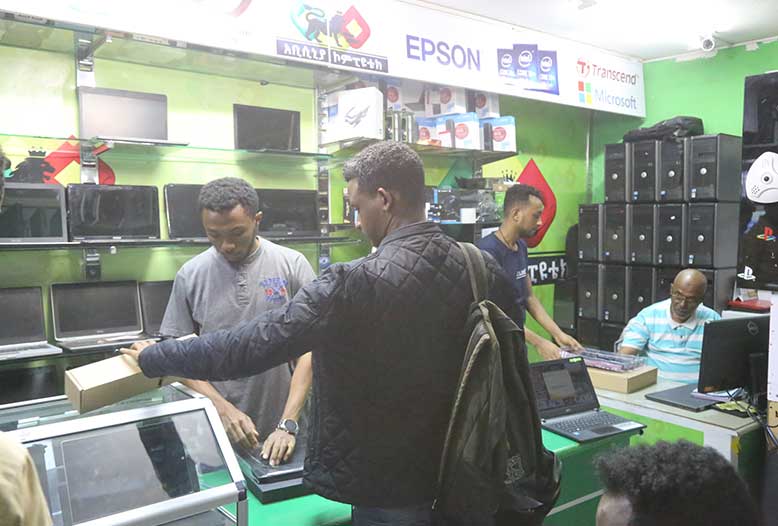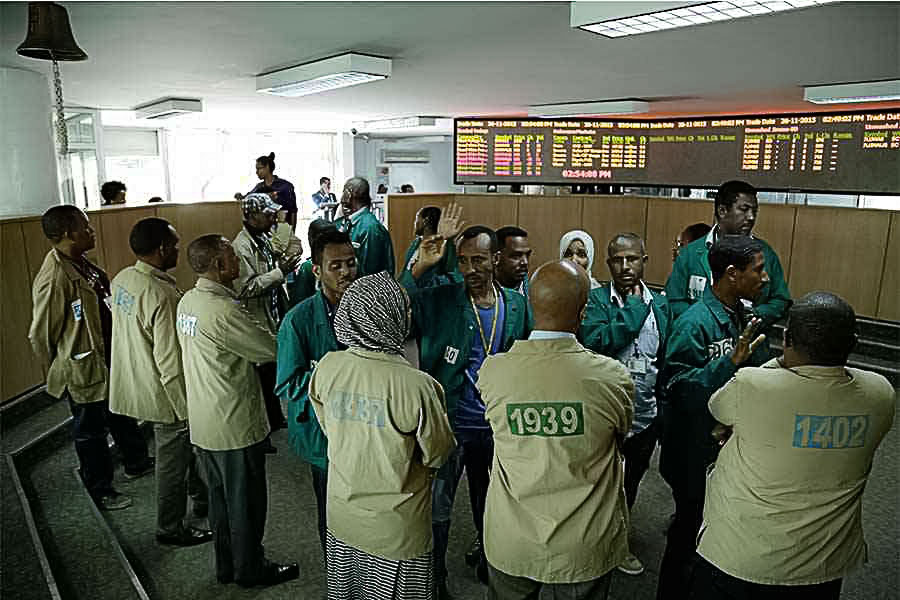
Fortune News | Sep 27,2020
Authorities at the federal government were forced to cancel an international bid to buy wheat deemed crucial to stabilise the market and provide welfare to low-income groups.
The only bidder that offered prices to supply 400,000tn of wheat, Promising International, has failed to meet a technical requirement. Another bid for a similar volume, floated by the United Nations Office for Project Services (UNOPS) earlier this month, had also been scrapped due to what insiders say is a "shift in priorities," although it was re-floated earlier this week.
A major setback for the authorities, the latest failure to ensure timely supplies of wheat undermines efforts to meet the growing demand due to a surge in the number of people who need emergency humanitarian assistance, people following the case fear. As many as 23.8 million people across Ethiopia will require emergency humanitarian assistance through September this year, according to an estimate made by USAID.
The first bid was floated in March this year as part of a special procurement move to buy wheat, rice and sugar. Only one company of the 57 interested bidders, Promising International, responded as the requirements include an agreement by the supplier to repatriate the revenues from the sales between two and five years. A committee comprising officials from the ministries of Trade & Industry and Finance, the Ethiopian Trading Businesses Corporation, and Public Procurement & Property Disposal Service (PPPDS) was formed to follow up the procurement process.
"The tender has been cancelled as the bidders didn't meet the technical criteria," said Tsewaye Muluneh, director-general of the Public Procurement & Property Disposal Services (PPPDS).
A technical mishap from Promising International was partly to blame for the cancellation of the bid. A bank guarantee for half a million Birr, which should have been enclosed with financial documents, was mistakenly enclosed in the technical document, said Habtamu Million, a local representative of the Dubai-based trading house.
Promising International has a long history of disputes with Ethiopian authorities over unsuccessful bids floated to buy wheat.
Officials from the Ministry of Trade & Industry did not respond to questions about what is to come next in the procurement process, despite repeated attempts from Fortune.
Last month, a contract for the procurement of 30,000tn of wheat (estimated to cost almost half a billion Birr) for the safety net programme funded by the World Bank was awarded to Promising International.
"We'll proceed with the procurement based on directions provided by the Ministry of Trade," Tsewaye told Fortune.
Another international bid for 400,000tn of wheat issued by UNOPS on June 7 was scrapped. Floated in two slots of 200,000tn of wheat each, the selected bidder would have entered into a commitment to deliver the commodity within three months.
"The grain is needed urgently," responded the Office to bidders urging an extension of the deadline set for June 11. "Bidders were requested to submit their offer by the closing date and time."
The Office attributed the cancellation to "a change in the specification and scope of the requirement." However, the cancellation was due to a shift in priorities, according to sources. The bid was refloated on June 22.
Delays in procurements are occurring during the rainy season when farmers do not harvest wheat, and as domestic stock will be depleted, a shortage of wheat will be prevalent, especially in urban areas, according to Messay Mulugeta (PhD), a food security expert.
"There's a significant shortage," said Messay.
Ethiopia imports close to 30pc of the four million tonnes of wheat consumed annually. In the last year alone, the federal government imported 1.7 million tonnes, excluding aid.
PUBLISHED ON
[ VOL
, NO
]

Fortune News | Sep 27,2020

Fortune News | Mar 05,2022

Agenda | Sep 28,2019

Radar | Feb 16,2019

Radar | Jul 29,2023

Fortune News | Oct 31,2020

My Opinion | Jul 31,2021

Radar | Apr 20,2019

Fortune News | Nov 30,2019

Fortune News | Oct 22,2022

Dec 22 , 2024 . By TIZITA SHEWAFERAW
Charged with transforming colossal state-owned enterprises into modern and competitiv...

Aug 18 , 2024 . By AKSAH ITALO
Although predictable Yonas Zerihun's job in the ride-hailing service is not immune to...

Jul 28 , 2024 . By TIZITA SHEWAFERAW
Unhabitual, perhaps too many, Samuel Gebreyohannes, 38, used to occasionally enjoy a couple of beers at breakfast. However, he recently swit...

Jul 13 , 2024 . By AKSAH ITALO
Investors who rely on tractors, trucks, and field vehicles for commuting, transporting commodities, and f...

Oct 25 , 2025
The regulatory machinery is on overdrive. In only two years, no fewer than 35 new pro...

Oct 18 , 2025
The political establishment, notably the ruling party and its top brass, has become p...

Oct 11 , 2025
Ladislas Farago, a roving Associated Press (AP) correspondent, arrived in Ethiopia in...

Oct 4 , 2025
Eyob Tekalegn (PhD) had been in the Governor's chair for only weeks when, on Septembe...